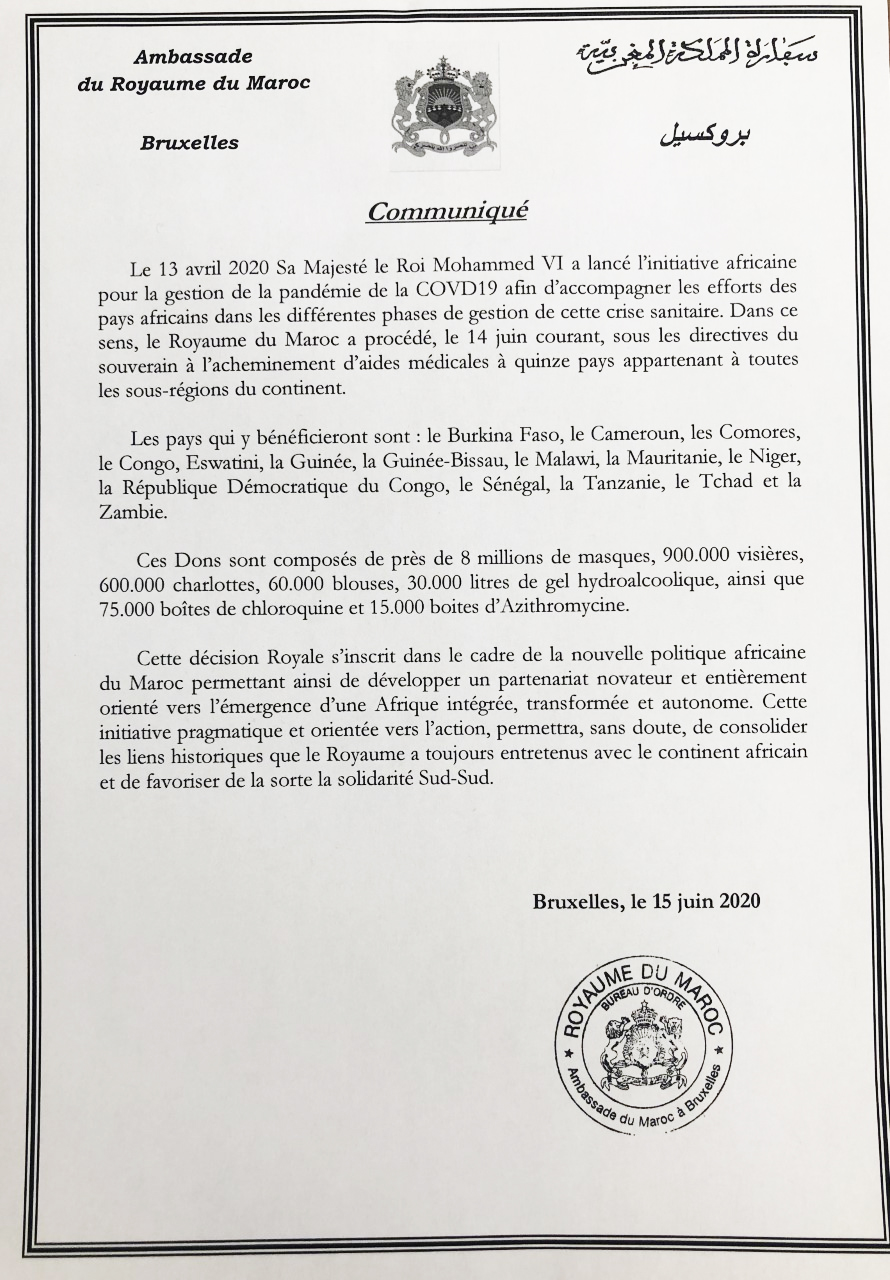
Morocco and the Management of
COVID19 pandemic
Lessons for a new development model Under the high directives of His Majesty King Mohammed VI, Morocco was able to manage the COVID-19 pandemic in an exemplary fashion, as evidenced by the stability of the epidemiological situation observed on its territory.
Since the appearance of the first contaminated cases, Morocco has adopted a strategy to fight this pandemic and a series of firm and early preventive measures which have earned it to be cited as an example internationally ...
Thus, as of March 15, Morocco was one of the first countries to order the closure of its borders, the prohibition of rallies, the suspension of education and the closure of mosques and non-essential businesses.
The proclamation of the state of health emergency, on March 20, by establishing a strict confinement and a restriction of circulation on all the national territory and finally, the obligation of the wearing of the mask as of April 7 for the people authorized to move, will reinforce the pre-established system.
On the health level, one of the priorities of the Moroccan authorities has been to consolidate the health infrastructure with the acquisition of medical material and equipment, the increase in tests and the capacity of reception of infected cases with the creation of military field hospitals to strengthen the capacity to care for patients in several cities, the mobilization of industry in the manufacture of hydroalcoholic gel and protective masks which were even exported to several European countries and Africa, etc. On the economic and social level, and on royal impetus, a special fund dedicated to the management of the coronavirus pandemic was created with the aim of covering the costs of upgrading the medical device, supporting the national economy , to preserve jobs and to mitigate the social repercussions of this crisis.
This fund has raised more than 3 billion euros thanks to the momentum of solidarity generated by the pandemic, momentum which has also been expressed by a broad mobilization of corporate citizens, public and private, as well as civil society, in order to provide assistance and support to the efforts made by the authorities.
All of its measures have made it possible to limit the spread of the virus on the national territory to 8,302 contaminations confirmed on June 8, running over a total population of nearly 40 million inhabitants.
Another direct consequence of the measures adopted is the low fatality rate recorded (2.5%) with only 208 deaths deplored.
The increase in screening to 17,500 tests per day has made it possible to demonstrate a stagnation of contamination in certain regions, a decline in others while certain cities have already been declared healthy.
In parallel to the national response efforts, His Majesty the ROI launched an initiative at the level of heads of state aimed at creating an operational framework to support African countries in their various phases of pandemic management; Several states and international organizations have praised the effectiveness of the measures taken by Morocco to fight this pandemic.
At this stage in the evolution of the pandemic, several lessons can already be drawn:
An exemplary burst of solidarity transcending Moroccan society across all social categories;
A remarkable sense of inventiveness and creativity demonstrated by Moroccan industrialists and scientists;
The wealth of Morocco resides in its human capital which was mobilized with fervor and generosity;
This health crisis has made it possible to integrate new orientations into the reflection launched by Morocco for several months for the elaboration of a new development model. |
